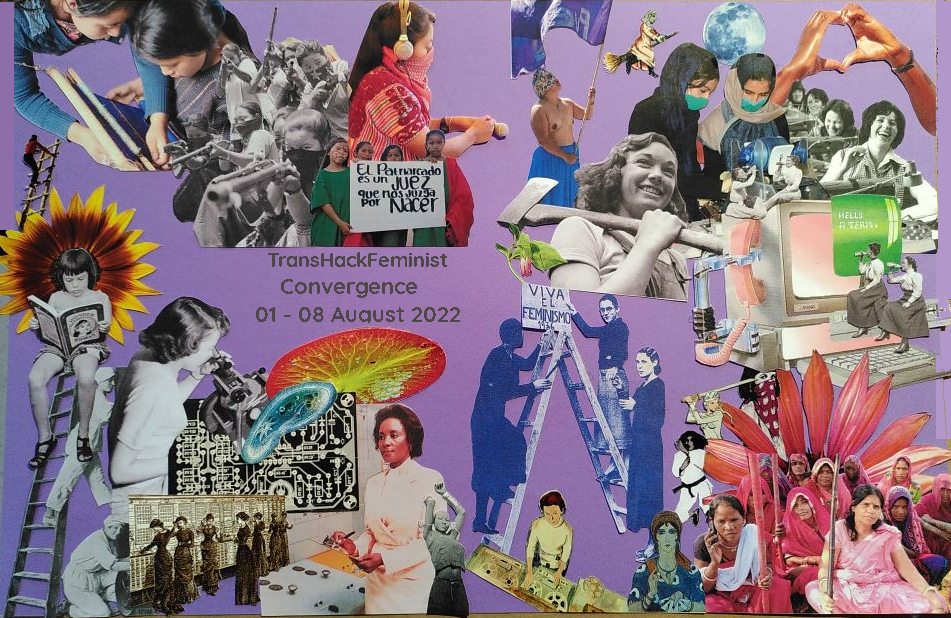This session proposes to discuss contemporary cyberfeminist practices. The term was coined in the 1990s, is it still relevant for today? Which memories and genealogies are engaged with that term? What potentialities? Let’s discuss these, and other, questions together!
Language: English
Documentation node
Notes:
Anne Laforet: Does cyberfeminism still resonate? Or is it too much infused by 1990s practices? What are we talking about today? Technofeminism, digital feminism, data feminism, feminist infrastructure, FSTS, glitchfeminsm, xenofeminism, etc.
Spideralex: Many traditions of cyberfeminism: Venus Matrix, using art to explore identities. Social Cyberfeminism: Beijing meeting, Make this difference. Maybe one is old school and the other not.
Excitement about the plurality of the term: We don’t need one term to refer to the relationship of “feminism” and “cyber/digital” . Mapping exercise to map all of the different types of the “digital” and “feminism”. It is a demonstration of the excitement with framework.
Terms are situated and located geographically, ideologically.
Carl: Hacker cultures – Feminism hackers. In Brazil, people prefer to identify as cyberfeminist rather than feminist hacker. Don’t feel comfortable to embrace themselves as hackers.
Anne Laforet: The book – Le feminisme et les réseaux sociaux – does not mention cyberfeminism [ https://www.horsdatteinte.org/livre/feminisme-et-reseaux-sociaux/]
Anais: Reappropriating terms and play with the terms and make it visible.
Carl: Cyber = is not necessarily connected to the technologies or techniques. The meaning of Cyber – Bodies can be different and they can be changed and they are ours.
Laure: complicated terms to be used since I don’t feel connected and part of the field. How do we find paedagogies that enable women* to find their own place to find legitimacy?
Too many labels. So I don’t call myself cyberfeminist.
Feminists are fearful of calling themselves “X” such as cyberfeminism.
Roberte La Rousse: We categories ourselves as a cyberfeminist art collective. La reset – feminist and queer hackerspace in Paris (http://lereset.org) now closed.
Carl: we like the term “hacker” because for us it is oriented towards the “doing”. I see a lot of young girls in Brazil (17, 18, 19) connecting to the term cyberfeminism . They have grown up with social media. It seems like it is easier for them to associated with cyberfeminism than with feminism?
B: I don’t know about them, but I can speculate that the only feminism they know is online.
Anais: Where are these references coming from?
B: Tumbler save my life. I am the generation of myspace. This was not the feminism of my mom as they were missing some important part.
Anne Laforet: What i find interesting is that different generations can use cyberfeminism. She learned from Nathalie Magnan in France who was a student of Donna Haraway and who was one of the first to translate Haraway into French.
